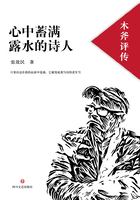Before 1789, collective legal entities (persons), provincial and communal, still existed. On the one hand, five or six great local bodies, represented by elective assemblies, full of life and spontaneously active, among others those of Languedoc and Brittany, still provided for and governed themselves. The other provinces, which the central power had reduced to administrative districts, retained, at least, their historic cohesion, their time-honored name, the lament for, or at least the souvenir of, their former autonomy, and, here and there, a few vestiges or fragments of their lost independence; and, better yet, these old, paralyzed, but not mutilated bodies, had just assumed new life, and under their renewed organism were striving to give the blood in their veins a fresh start. Twenty-one provincial assemblies, instituted over the entire territory, between 1778 and 1787, and provided with powers of considerable importance, undertook, each in its own sphere, to direct provincial interests. Communal interest, also, had its representatives in the urban or rural communes. In the towns, a deliberative assembly, composed of the leading notables and of delegates elected by all the corporations and communities in the place, formed an intermittent municipal council the same as to-day, but much more ample, which voted and passed resolutions on important occasions; there was a board of management at the head of it, "the town corps," comprising the various municipal officials, the mayor, his lieutenant, sheriffs, prosecuting attorney, treasurer, and clerk,[14] now elected by the deliberative assembly, now the legal purchasers, heirs, and proprietors of their office, the same as a notary or advocate of to-day owns his office, protected against administrative caprices by a royal acquittance, and, for a money consideration, titular in their towns, the same as a parliamentarian in his parliament, and hence planted in, or grafted upon, the commune like a parliamentarian among his peers, and, like him, defenders of local interests against the central power. - In the village, the heads of families met together on the public square, deliberated in common over common affairs, elected the syndic, likewise the collectors of the taille, and deputies to the intendant;of their own accord, but with his approval, they taxed themselves for the support of the school, for repairs to the church or fountain, and for beginning or carrying on a suit in court. - All these remains of the ancient provincial and communal initiative, respected or tolerated by monarchical centralization, are crushed out and extinguished. The First Consul very soon falls upon these local societies and seizes them in his claws; in the eyes of the new legislator they scarcely seem to exist; there must not be any local personalities for him. The commune and department, in his eyes, are merely territorial districts, physical portions of the public domain, provincial workshops to which the central State transfers and uses its tools, in order to work effectively and on the spot. Here, as elsewhere, he takes the business entirely in his own hands; if he employs interested parties it is only as auxiliaries, at odd times, for a few days, to operate with more discernment and more economy, to listen to complaints and promises, to become better informed and the better to apportion changes; but, except this occasional and subordinate help, the members of the local society must remain passive in the local society; they are to pay and obey, and nothing more. Their community no longer belongs to them, but to the government; its chiefs are functionaries who depend on him, and not on it; it no longer issues its mandate; all its legal mandatories, all its representatives and directors, municipal or general councilors, mayors, sub-prefects or prefects, are imposed on it from above, by a foreign hand, and, willingly or not, instead of choosing them, it has to put up with them.
VI. Local Elections under the First Consul.
Lists of notables. - Sénatus-consultes of the year X. - Liberal institution becomes a reigning instrument. - Mechanism of the system of appointments and candidatures. - Decree of 1806 and suppression of candidatures.
At the beginning, an effort was made to put in practice the constitutional principle proposed by Sieyès: Power in future, according the accepted formula, must come from above and confidence from below. To this end, in the year IX, the assembled citizens appointed one-tenth of their number, about 500,000 communal notables, and these, likewise assembled, appointed also one-tenth of their number, about 50,000 departmental notables. The government selected from this list the municipal councilors of each commune, and, from this second list, the general councilors of each department. - The machine, however, is clumsy, difficult to set going, still more difficult to manage, and too unreliable in its operation. According to the First Consul, it is an absurd system, "a childish piece of ideology; a great nation should not be organized in this way."[15] At bottom,[16] "he does not want notables accepted by the nation. In his system, he is to declare who the notables of the nation shall be and stamp them with the seal of the State; it is not for the nation to present them to the head of the State stamped with the national seal."Consequently, at the end of a year, he becomes, through the establishment of electoral colleges, the veritable grand-elector of all the notables; he has transformed, with his usual address, a liberal institution into a reigning instrumentality.[17]














